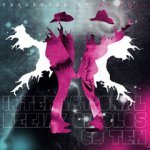
Various Artists (Compiled by DJ Hell) International Deejay Gigolos CD 10
(International Deejay Gigolos)
Say what you want about him, but DJ Hell pretty much single-handedly saved dance music in 2001; at a time when the UK's club scene was groaning under the weight of 4-hour Prog-House sets from a clutch of average bloke DJs (who were invariably called Paul, for some reason), International Deejay Gigolos brought a dirty imagination and a healthy dose of pretentious playfulness back to the table. The label was cast as one of the leading players in the 'Electroclash' scene about 10 minutes after Larry Tee promoted an event of the same name, and everyone was subsequently urged to burn their guitars and relocate to Berlin forthwith.
Of course, the relationship that the music press has with the scenes they help to assemble is not dissimilar to the playground romances that 9-year-olds have with each other: swooning and skipping around one minute, and then proclaiming their eternal hatred the next as they felt-tip a new name on their maths books. Electroclash was declared to be officially redundant a few years later (by people overly-concerned with one-upmanship and magazine sales), and everybody was urged to burn their synths and rescue their guitars from the flames. An ill-fated attempt was made by the same people, based on the emergence of a few half-decent bands, to convince everyone that punk-funk was now the way forward (it wasn't).
What actually happened was that the diverse and disparate music released on Gigolos carried on influencing the direction of dance music regardless. Up-and-coming producers took what worked for them (distorted synth swathes, choppy edits, a vaguely grubby subject matter) and jettisoned the rest (the more European-sounding techno templates, bored German girls talking about loving their answering machines, etc). Justice's remix of Simian's We Are Your Friends, originally released by Gigolos, continued to be an underground classic for another two years, until its re-release last year took it into the UK charts. Vitalic, whose Poney EP on Gigolos arguably kicked off the electro-metal stylings that brought Justice and their current imitators to prominence, justified the hype with his debut. Play Paul, Boys Noize, Savas Pascadilis, Christopher Just and Freaks continue to put out great 12"s, and almost all the major players of the current electro scene (e.g. SebastiAn, Riot in Belgium, Kissy Sell Out etc etc ad infinitum) have the dirty fingerprints of Gigolos all over them.
However, as the label's influence and output grew, their already poor quality control (which was forgiveable on a 24-track compilation, less so on 12" releases) worsened noticeably, disillusioning their former supporters (including me), who were understandably fed up of wasting their money on a regular basis. The exceptions to this were the compilations, which remained an essential purchase; they began to feature more tracks, and thus more filler, but there were always enough good tracks to make it worth the trawl. However, by Volume 9 the selection process seemingly involved Hell picking names out of a hat, judging from the amount of dispensable, identikit euro-techno/house tracks it showcased (aside from the outstanding Hell remix of Grace Jones' I've Seen That Face Before).
Unfortunately, this latest instalment is even worse. Although most of the tracks are ok, nothing stands out as being particularly distinctive or individual, and most take a long time to do very little. Truth be told, I can't even remember what any of them sound like now, and I've been listening to it all morning. Rebecca Von Kalinowsky, The Activator and the Jamie Anderson/Jesse Rose collaboration rise slightly above the rest of the pack, but generally speaking, the music here is devoid of the playful inventiveness of the past. Mount Sims is the other exception, although personally I wish he was still trying to be Prince rather than Dave Gahan.
When Gigolos started, they made it clear that Michael Alig's New York Club Kids were a major influence: they dressed up, made things glamourous; they released great, oddball tracks from never-to-be-heard-of-again misfits; they were pretentious, brightly-coloured and darkly humourous. That sense of fun has all but vanished, and the cover art (featuring two cowboy silhouettes bumping their scrotums together) can't disguise the fact that the content behind the image is as pedestrian as electro/techno gets. Despite the ridiculous moniker and an insistence on using his 'blue steel' pout in every photo, DJ Hell remains a prominent and respected figure in dance music. From the evidence presented here, he'll need to spend a good while longer finding tracks for volume 11 if he wants to avoid merely becoming an elder statesman for a scene that's moving on without him. What newer labels like Kitsune and Dirty Bird know, and what Gigolos seem to have now forgotten, is that dance music is supposed to be fun...
5 August, 2007 - 09:42 — Pat Harte